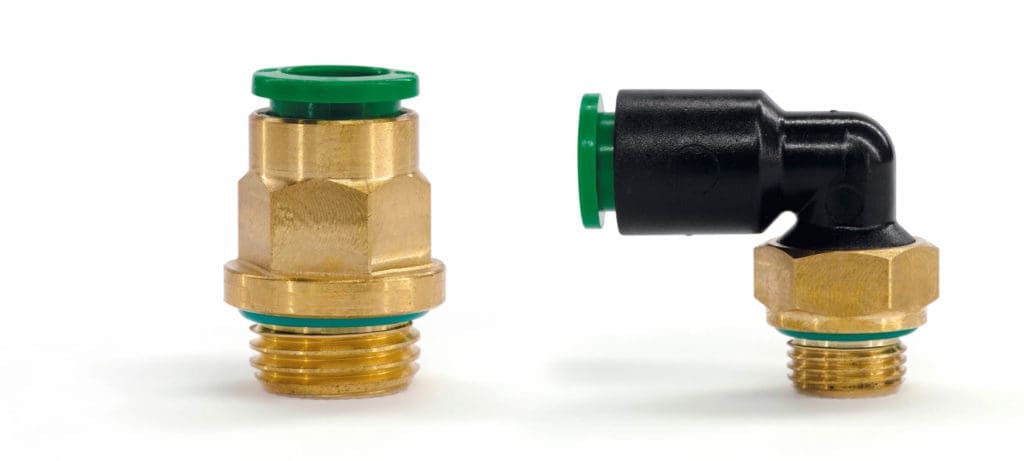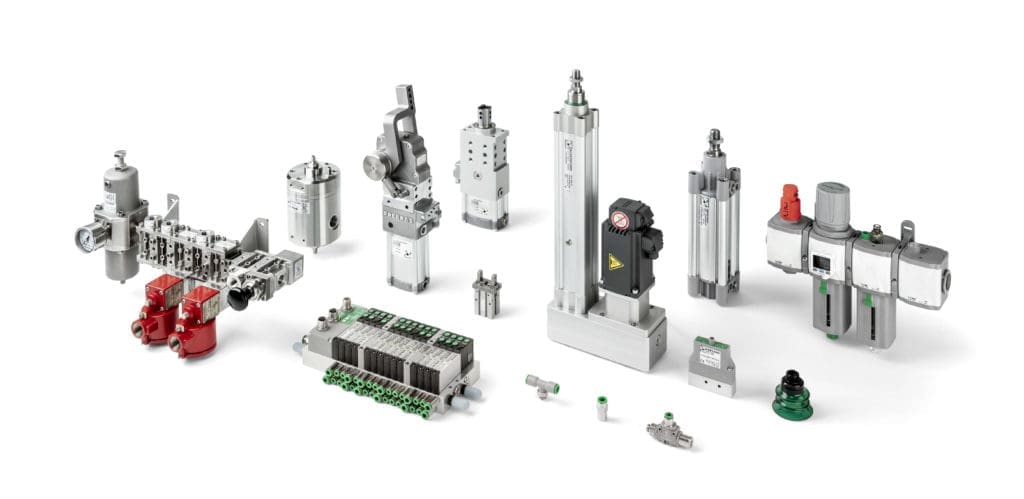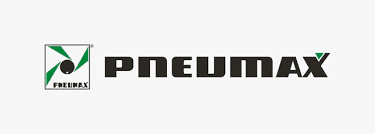Pneumatic components, electric actuation and fluid control
Founded in 1976, Pneumax S.p.A. has become one of the leading international players in the field of industrial and process automation components and systems. The company is at the head of the Pneumax Group made up of 25 commercial and production companies with over 730 employees worldwide.
The international network includes 9 branches in Italy, 8 branches in Europe in addition to branches in the USA, Brazil, India, China and Singapore, and a vast network of distributors that guarantee presence in over 50 countries.
All of the Pneumax Group’s manufacturing facilities are located in Italy, the seven units in Lurano (BG) plus Titan Engineering in San Marino.


All the facilities comply with the environmental and workplace safety requirements set out in standards ISO 9001: 2015, ISO 14001:2015 and ISO 45001: 2018.
Continuous investment in research and development has enabled Pneumax to expand its offer by combining well established pneumatic technology (actuators, valves and solenoid valves, proportional technology, fittings, air treatment, materials handling, vacuum), with electrical actuation and components for liquid and gaseous fluid control and offering solutions made from different materials ranging from stainless steel to engineering polymers or from aluminium to brass.
The organizational structure designed to maximize flexibility and the use of cutting-edge technologies ensure maximum efficiency both for the supply of standard components and the creation of completely customised solutions.
At the same time, the development of mechatronic and digital expertise underlies the creation of integrated systems which, thanks to enabling technologies, are capable of meeting the requirements of Industry 4.0, from component interconnection to the ability to remotely control and manage component performance, without ever neglecting aspects such as optimizing consumption.
FCM FITTINGS

Food Contact Material
The food & beverage and food packaging sectors are two of the sectors for which the company offers specific products such as the entire range of stainless steel components (cylinders, valves and solenoid valves, FRL, fittings) or FCM fittings which, in addition to ensuring reliability and high performance, comply with relevant international standards.
FCM fittings are suitable for contact with food and the passage of food fluids according to European Regulations (EC) 1935/2004, (EC) 2023/2006, (EC) 11/2011 and contact with drinking pursuant to Italian Ministerial Decree DM 174/2004.
The FCM series is made by Titan Engineering, a company of the Pneumax Group which has specialised for over 25 years in the design and production of fittings and connection components made of brass, engineering polymers or stainless steel for pneumatic circuits.
With regard to application, the FCM series fittings hold certifications not only for contact with food, but also for suitability for the passage of food fluids, a requirement certified by testing carried out according to precise specifications using machinery introduced during validation of Titan Engineering’s production process, carried out in compliance with European Directive 2014/35/EU and capable of carrying out tests on the basis of the standards specified by UNI EN ISO 1386: 2001 and later.
The tests include all component materials, already compliant with FC (Food Contact) standards, as well as plastic parts in POM (polyoxymethylene) and IXEF 1022FC (polyarylamide 50% GF) and metal parts in brass OT57 (CW510L with low lead content, NSF/ANSI 372 certified).
The certification guarantees component tightness under pressure, not only with drinking water but also with other food fluids such as wine, beer and beverages in general.
In order to guarantee maximum quality and reliability in the context of a procedure set out in specifications under the new European Regulation (EU) 831/2018, now familiar to industry insiders as MOCA, the Pneumax Group has undertaken a validation procedure not only for its own production processes, but also for the entire supply chain to ensure compliance with the guidelines specified by the certification bodies.





